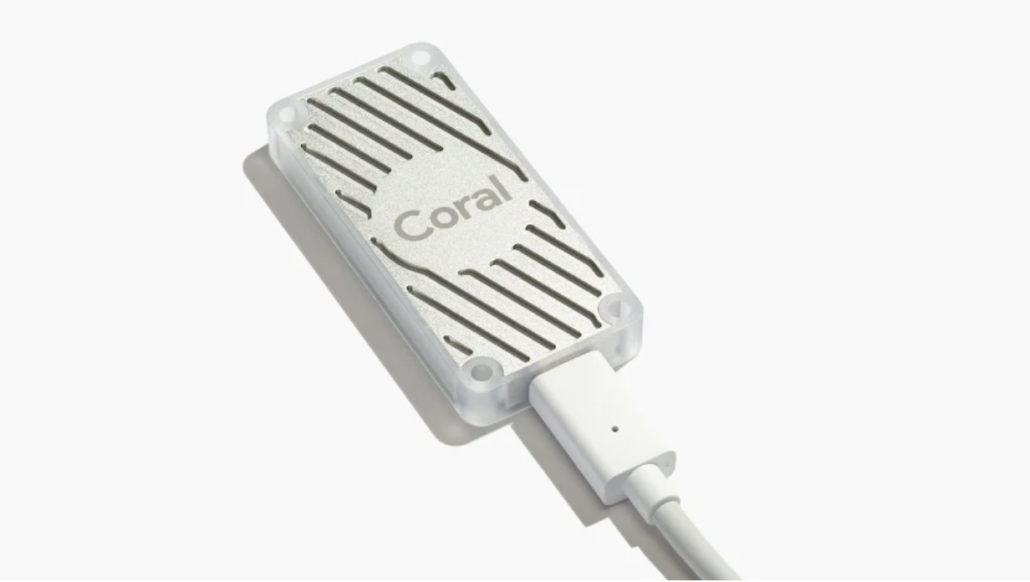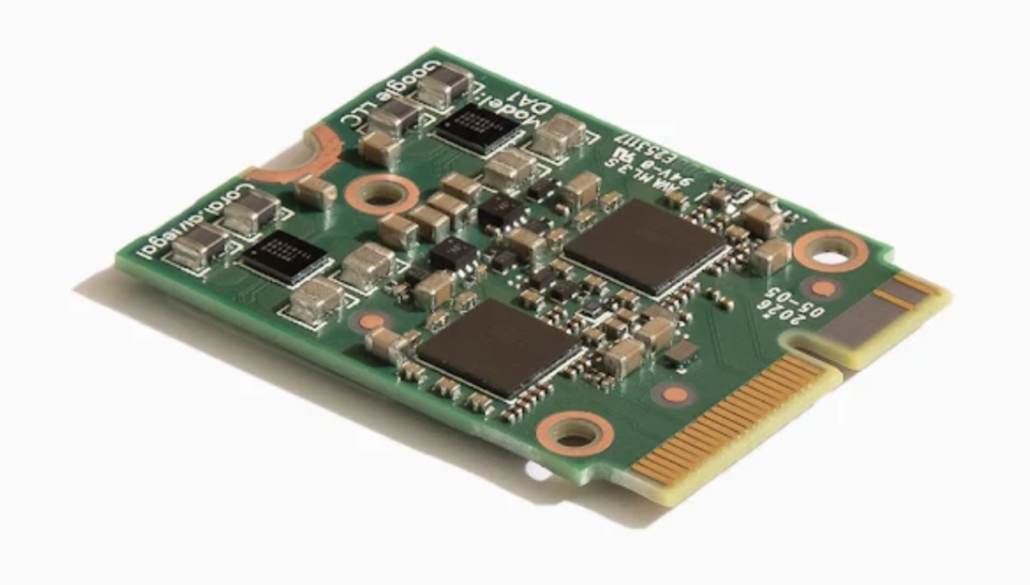Raspberry Pi AI Kit(Hailo-8L) vs Coral USB Accelerator vs Coral M.2 Accelerator with Dual Edge TPU
By Liyan Gong 9 months agoAs AI continues to evolve rapidly, the demand for powerful yet accessible edge computing solutions has skyrocketed. This surge is driven by the need for local, real-time AI processing in applications ranging from smart home devices to industrial automation. Edge AI offers benefits such as reduced latency, enhanced privacy, and lower bandwidth requirements compared to cloud-based solutions.
In response, several companies have introduced AI accelerators designed to work with popular single-board computers and embedded systems. These devices enable efficient and faster AI inferencing at the edge by offloading computations from the main processor.
In this article, we’ll compare three popular options for AI enthusiasts and developers looking to enhance their projects: the Raspberry Pi AI Kit, the Coral USB Accelerator, and the Coral TPU + M.2.
For those that are already familiar with the above three AI devices, feel free to skip to the end to view a detailed summary and comparison of them!
An In-Depth Look at the Three AI Hardware Accelerators
1. Raspberry Pi AI Kit

Raspberry Pi AI Kit Key features
- Low power consumption: Typically around 2 watts
- PCIe 3.0 connection: Single-lane running at 8Gbps
- Full integration with Raspberry Pi camera software
- Compatibility with various camera options
- Efficient scheduling for multiple neural networks
Hardware Requirements
- Only compatible with Raspberry Pi 5
AI Applications
- Computer vision projects
- Object detection and recognition
- Semantic and instance segmentation
- Pose estimation
- Facial landmarking
- Smart home automation
- Educational AI projects
Getting Started
Follow this comprehensive guide from the official Raspberry Pi documentation to set up your Raspberry Pi AI Kit. Take note that you will need a Pi 5. You can also check out this simple video guide on youtube for a visual guide on setting up the AI Kit. You may also interested in best raspberry pi 5 project ideas.2. Coral USB Accelerator

The Google Coral USB Accelerator is a powerful and compact device designed to bring machine learning capabilities to edge computing systems. This USB accessory enables fast AI inferencing on existing hardware, making it an ideal solution for developers, researchers, and hobbyists looking to implement AI in their projects. It has a peak performance of 4 TOPS (trillion operations per second) for int8 operations.
Google Coral USB Accelerator Key features
- Plug-and-play USB device with dimensions of 65mm x 30 mm for easy integration
- Impressive energy efficiency at 2 TOPS per watt
- Versatile USB 3.0 Type-C connector for data and power
- Compact dimensions of 65 mm x 30 mm
- Compatibility with Linux, macOS, and Windows operating systems
- Designed to work seamlessly with TensorFlow Lite models
System Requirements
- Compatible with Linux Debian 10 (or derivatives like Ubuntu 18.04), macOS 10.15, or Windows 10
- Supports x86-64, Armv7 (32-bit), and Armv8 (64-bit) architectures
- Best performance achieved with a USB 3.0 port
AI Applications
- AI-enabled NVR (Network Video Recorder) systems
- Adding AI acceleration to existing projects
- Home automation and security
- Computer vision projects
The Coal USB Accelerator excels at bringing AI capability to existing projects or hardware, simply by plugging it in through a USB 3.0 Type-C Connector with minimal set up required. Get yours now today at Seeedstudio at a discounted price of $59.99 USD!
Getting Started
Follow this step-by-step guide available from Coral’s official documentation to set up your Coral USB Accelerator and run your first accelerated AI model!
3. Coral M.2 Accelerator with Dual Edge TPU

The Coral M.2 Accelerator with Dual Edge TPU is a powerful machine learning module designed to integrate seamlessly into existing systems and new products. This compact device brings advanced AI capabilities to edge computing applications, offering impressive performance of up to 8 TOPS(trillion operations per second) for int8 operations in a small form factor.
Coral M.2 Accelerator with Dual Edge TPU Key features
- High energy efficiency at 2 TOPS per watt
- Two PCIe Gen2 x1 interfaces, one for each Edge TPU
- 2-2230-D3-E module form factor
- Wide operating temperature range: -40 to +85 °C
- Designed to work with TensorFlow Lite models
- Supports parallel execution of two models or pipelining one model across both Edge TPUs
System Requirements
- Works with Debian-based Linux systems (64-bit version of Debian 10 or Ubuntu 16.04 and newer)
- Compatible with Windows 10 (64-bit)
- Supports x86-64 and ARMv8 (64-bit) architectures
- It’s important to note that while the M.2 specification requires E-key sockets to provide two PCIe x1 lanes, many manufacturers only provide one. To fully utilize both Edge TPUs, users must ensure their socket actually provides two PCIe x1 connections.
AI Applications
- Mobile and embedded systems requiring accelerated machine learning
- Industrial applications such as workpiece inspection and traffic situation recognition
- Edge AI development and prototyping
- Computer vision projects
The Coral M.2 Accelerator with Dual Edge TPU is only priced at US$39.99 , offering a cost-effective solution for integrating powerful AI capabilities into various systems and products with the M.2 form factor. With its combination of high performance, energy efficiency, and compact size, this module is an excellent choice for developers and manufacturers looking to implement edge AI in their projects or enhance the capabilities of existing systems.
Getting Started
Check out this detailed guide in Coral’s official documentation to help you integrate the Coral M.2 Accelerator into your system and start leveraging its AI acceleration capabilities!
Further reading: Difference between CPU, GPU, TPU and NPU
Summary and Comparison
The below table is a comprehensive comparison table with the key points mentioned above. This table encapsulates the key features, specifications, and use cases for each device.
| Feature | Raspberry Pi AI Kit | Coral USB Accelerator | Coral M.2 Accelerator with Dual Edge TPU |
| Release Date | June 4 2024 | August 2020(Latest version) | August 2021 |
| Form Factor | M.2 2242 | USB 3.0 Type-C | M.2-2230-D3-E |
| AI Chip | Hailo-8L | Edge TPU | Dual Edge TPU |
| Performance | 13 TOPS | 4 TOPS | 8 TOPS |
| Power Consumption/TOPS | ~2 Watt | ~2 Watt | ~2 Watt |
| Connectivity | PCIE 3.0 | USB 3.0 Type-C | two PCIe Gen2 x1 interfaces |
| Compatibility | Raspberry Pi 5 | Linux, macOS, Windows | Linux (Debian-based), Windows 10 |
| Key Features | full integration with Pi 5 | Plug and play USB device | Supports parallel execution |
| Price | $70 | $59.99 | $39.99 |
Conclusion
Raspberry Pi AI Kit
- Ideal for beginners and all-in-one solutions
- Perfect for those new to AI development
- Seamless integration with Raspberry Pi 5
Google Coral USB Accelerator
- Best for flexible AI acceleration
- Easy to add to existing projects
- Compatible with various devices, including Raspberry Pi
- Portable USB form factor for quick setup
Coral M.2 Accelerator with Dual Edge TPU
- Suited for advanced projects
- Highest performance with dual Edge TPUs
- Designed for custom embedded systems
- Ideal for complex AI applications requiring more processing power
For the most seamless and user-friendly setup, we highly recommend getting the Raspberry Pi Ai Kit over Google Coral. This is because google coral has not been updated for a considerable amount of time, leading to compatibility issues with the latest Python installations. Integrating Google Coral with Raspberry Pi will require significantly more effort and technical expertise.
However, for the more advanced developers or those who welcome challenges, you can follow this detailed guide published on Github to set up Google Coral on your Raspberry Pi 5 for YOLOv8.
Lastly, to find out more about open-source hardware projects related to Rasperry Pi and the Raspberry Pi AI Kit, feel free to check out Seeed’s community Github page, where developers and enthusiasts come together and discuss the latest projects.
Catch the replays of Seeed’s live stream on ‘AI Boosted RPi for Real World Applications’ to uncover exciting insights into the difference in fps, power consumption, and pricing between Raspberry Pi AI Kit and Coral when running the same models